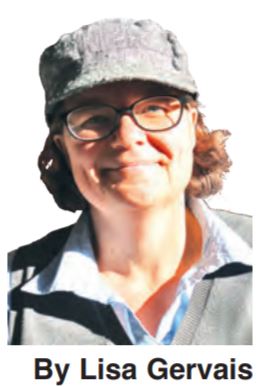A friend told me a funny story on the weekend – about how her uncle refused to accept daylight savings time. Said uncle would not change his clocks in the spring or fall. Asked if he missed any appointments as a result, my friend said her uncle recognized the time had changed elsewhere, but refused to acknowledge it at home.
This is always a tough time of the year for me. I dread daylight savings time in the fall as I dislike the earlier dark in the evening. My body also goes into appetite overdrive – as though my very life depends on fattening up for the coming winter.
It doesn’t, just as one has to wonder if daylight savings time has run its course.
Our nation first used daylight savings time during the First World War. This followed a global push to conserve fuel and reduce the need for electric light. The idea was that people would use less energy to light their homes if they had more daylight hours during working hours.
However, some people believe daylight savings time is no longer as effective as it once was. The energy required for air conditioning, heaters, and electronics is now much greater than the energy saved by reducing lighting.
Further, the Canadian Sleep Society has called for an end to daylight savings time. It wreaks havoc with our slumber around the two times changes. I know I hit the Melatonin for about a week around the adjustment each spring and fall.
Further, some places in Canada do not change the time at all, including parts of British Columbia, Ontario, Quebec, and Nunavut.
In 2020, Ontario passed a law to stop observing daylight savings time, but that was contingent on New York state and Quebec doing the same. That hasn’t happened. However, Quebec is asking its citizens via an online public consultation if it’s time to scrap the practice.
Long-time letter writer Beverly MacDuff of Gooderham wrote to say she’s not sure what the fuss is about. She seems to think daylight savings time was created to aid weather forecasting and train travel. She’s seen many clocks change over the years. She said it had not impacted her mental health or overall well-being. She also thinks there are bigger fish to fry than whether or not Ontario should scrap daylight savings time; such as war and violence. Bev’s advice? Enjoy the slower pace that daylight savings time has given us to relax and breathe a little easier.
Maybe she’s right. As humans, we are intrinsically linked with nature. Winter is when I most feel like hibernating; staying at home, and craving more sleep, comfort food and the warmth of the fireplace. It’s time for quiet and introspection. In a world ravaged by war and other cataclysmic events, it’s the great pause, the great reset that we all so desperately need.
So, while daylight savings time was invented to conserve electric light… in today’s world, maybe it’s all about conserving our inner light. Despite the disrupted sleep and food cravings, it might not be a bad thing after all.




